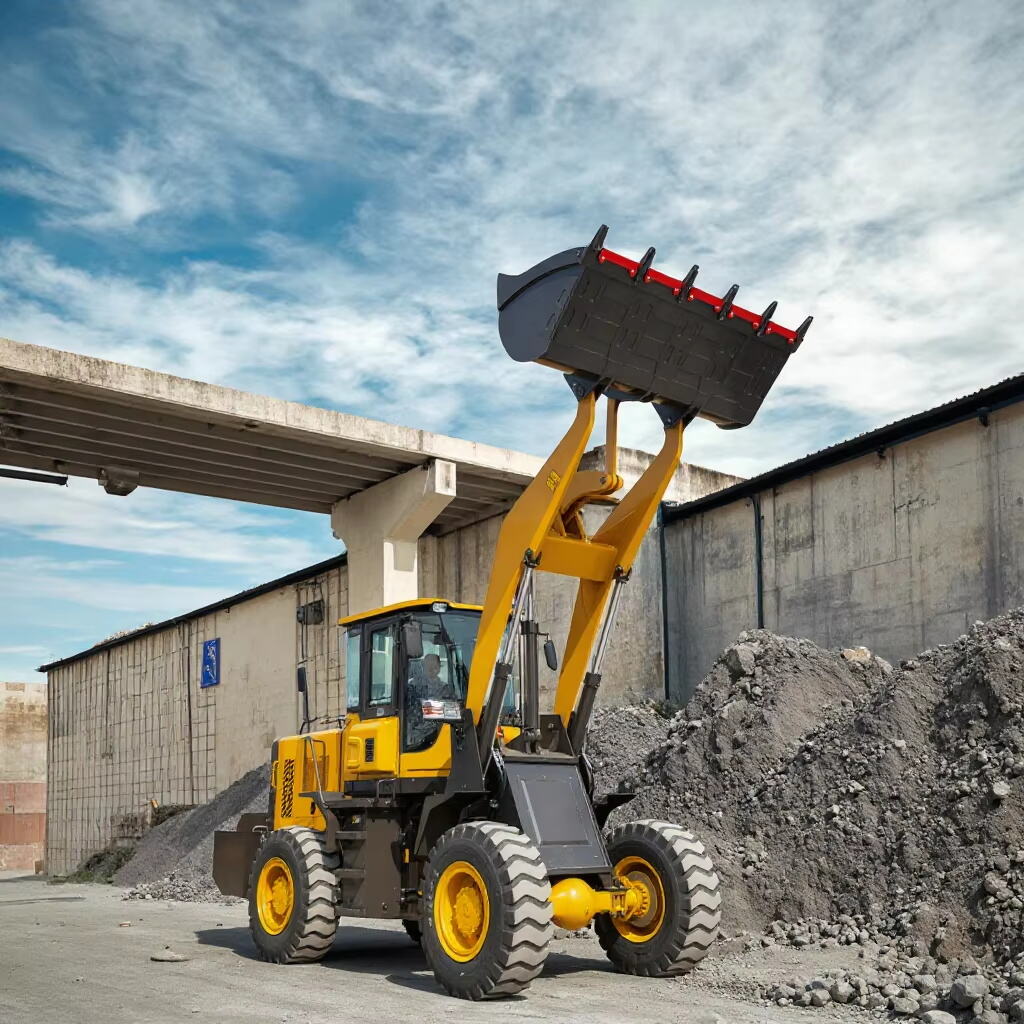The construction and material handling industries have witnessed remarkable transformations in recent years, with wheel loaders emerging as indispensable powerhouses of productivity. These versatile machines have redefined how businesses approach material handling tasks, offering unprecedented efficiency and flexibility across various applications. From construction sites to mining operations, waste management facilities to agricultural settings, wheel loaders have become the backbone of material handling operations, delivering exceptional performance and reliability.
Modern wheel loaders combine robust engineering with innovative features to tackle the most demanding material handling challenges. Their ability to adapt to different environments and handle diverse materials makes them an invaluable asset for operations of all sizes. As we delve deeper into the capabilities and advantages of these machines, we'll discover how they're revolutionizing workplace efficiency and setting new standards in material handling excellence.
Wheel loaders excel in handling a wide range of materials, from aggregate and construction debris to agricultural products and industrial materials. Their powerful hydraulic systems and precise control mechanisms enable operators to move materials efficiently and safely. These machines can easily manage loose materials like sand, gravel, and soil, while also being capable of handling heavier materials such as rocks and construction materials.
The adaptability of wheel loaders extends to various attachment options, allowing them to perform multiple tasks without the need for additional equipment. From standard buckets to specialized attachments like grapples and forks, these machines can be quickly configured to meet specific job requirements, maximizing operational flexibility and resource utilization.
Modern wheel loaders are equipped with advanced features that significantly boost productivity. Automated loading systems help optimize bucket fill rates, while intelligent power management systems ensure optimal fuel efficiency without compromising performance. The integration of telematics and real-time monitoring capabilities allows operators and managers to track machine performance, maintenance needs, and operational efficiency.
These machines also feature ergonomic operator cabins with enhanced visibility and comfort features, reducing operator fatigue and increasing productivity during long shifts. Advanced control systems provide precise material handling capabilities, enabling operators to work more efficiently and accurately in various conditions.

Today's wheel loaders are designed with sophisticated engine management systems that optimize fuel consumption while maintaining high performance levels. Variable power modes allow operators to match engine output to specific task requirements, reducing unnecessary fuel consumption and operating costs. The implementation of eco-friendly features and efficient hydraulic systems further enhances fuel economy without compromising lifting capacity or cycle times.
Advanced transmission systems and power train technologies contribute to improved efficiency by providing smooth power delivery and reducing energy loss during operation. These improvements not only lower operating costs but also extend component life and reduce maintenance requirements.
Modern wheel loaders are built with durability in mind, featuring robust components and simplified maintenance designs that reduce downtime and service costs. Easy-access maintenance points and extended service intervals help minimize routine maintenance time, allowing machines to spend more time on productive tasks. The integration of predictive maintenance technology helps prevent unexpected breakdowns and optimize service scheduling.
The long-term cost benefits of investing in a quality wheel loader become evident through reduced maintenance expenses, improved reliability, and extended service life. These machines maintain their value well over time, providing excellent return on investment through consistent performance and reduced operational costs.
Safety is a paramount consideration in wheel loader design, with manufacturers incorporating numerous features to protect operators and surrounding workers. Modern machines include enhanced visibility systems, backup cameras, and proximity sensors to prevent accidents and improve situational awareness. Stability control systems help prevent tip-overs during heavy lifting operations, while automatic brake systems ensure secure stopping power in all conditions.
Operator comfort features such as climate-controlled cabins, reduced noise levels, and ergonomic controls not only enhance safety but also contribute to increased productivity through reduced operator fatigue. These safety innovations help create a more secure working environment while maintaining efficient operation.
Contemporary wheel loaders are designed with environmental sustainability in mind, featuring reduced emissions and improved fuel efficiency. Advanced engine technologies meet strict emissions standards while maintaining optimal performance levels. The implementation of electric and hybrid options in some models further reduces environmental impact while providing comparable performance to traditional diesel-powered machines.
These machines also incorporate design elements that minimize ground disturbance and soil compaction, helping to protect the surrounding environment during operation. The use of biodegradable hydraulic fluids and other eco-friendly materials further demonstrates the industry's commitment to environmental responsibility.
The ideal wheel loader size depends on several factors, including the types of materials being handled, the required lifting capacity, and the working environment. Consider factors such as bucket capacity, operating weight, and lifting height when selecting a machine. Consulting with equipment specialists can help determine the most suitable size for your specific requirements.
Wheel loaders enhance efficiency through versatile material handling capabilities, quick attachment changes, and advanced productivity features. They reduce manual labor requirements, speed up material movement, and can perform multiple tasks with a single machine, leading to improved operational efficiency and cost savings.
Regular maintenance includes daily inspections of fluid levels, tire condition, and wear components. Scheduled service intervals typically involve oil and filter changes, hydraulic system maintenance, and component inspections. Following manufacturer-recommended maintenance schedules and using genuine parts ensures optimal performance and longevity.
 Hot News
Hot News2024-10-31
2024-10-28
2024-10-25
2024-10-23
2024-10-21
2024-09-03